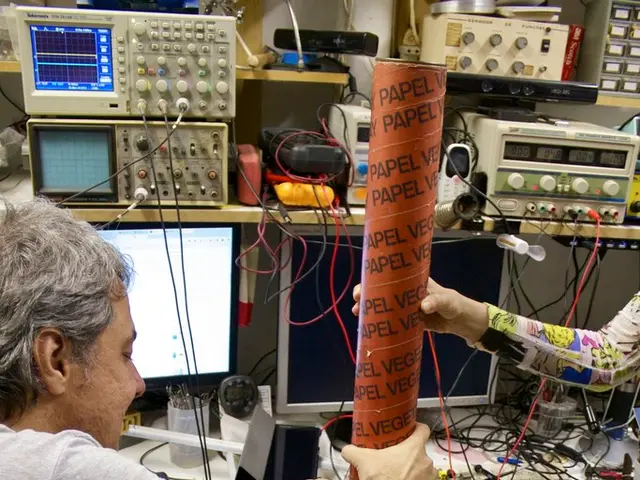AI Utilization in Film and TV Industry: Netflix's Agreement with the Actors' Guild
In the ever-evolving world of film production, we are on the brink of a new era with the upcoming release of the first AI-generated film, "Pirate Queen: Zheng Yi Sao," set to debut in July. This groundbreaking production, created by Chen Zhuo, a 29-year-old engineer and founder of the world's first AI film studio, FizzDragon, utilises AI technology for images, scenes, surroundings, digital actors, animation, and post-production.
Despite the innovative use of AI, the film's production encountered challenges with long dialogues, with human involvement still necessary for music and voices. The script, however, was penned by a human writer, as the AI was unable to verify historical data about pirate leader Zheng Yi Sao and achieve the necessary emotional depth.
As technology advances, so does the need for regulation. In this case, Netflix and BFFS, the German actors’ union, have agreed on binding rules for the use of Artificial Intelligence in dubbing and film production. These agreements ensure that AI is only used when copyright and personality rights are respected. The rules also regulate AI uses that could lead to changes in the performance.
Affected actors can only consent to the use of AI through a separate, explicit, and written declaration. This is an important step in maintaining the integrity of the acting profession and respecting personal rights, which is the primary focus of these agreements.
It's worth noting that, while there have been advancements in AI dubbing technology by Netflix, no explicit details on binding agreements between the streaming giant and BFFS about AI in dubbing or film production are available. If such an agreement exists, it has not been publicly reported or documented in the indexed sources up to this date.
The agreements are considered an important signal by BFFS legal advisor Bernard Stoerkmann, reflecting the industry's growing awareness of the need for regulation as AI becomes more prevalent in film production.
Meanwhile, in February, the Actors' Association, the Production Alliance, and the trade union ver.di agreed on conditions related to the use of generative AI in film productions. This further emphasises the industry's commitment to responsible AI use.
The production costs for "Pirate Queen: Zheng Yi Sao" remained manageable at 139,191 USD due to AI assistance. FizzDragon, the studio behind the film, started with just two people and has since grown to over a hundred, with individuals from around the globe working together with AI towards a common goal.
As we move forward, it's clear that the intersection of AI and film production is an exciting and rapidly evolving field. The regulations established by Netflix and BFFS, as well as other industry bodies, are crucial in ensuring a balanced approach to this technological advancement, respecting both the creative vision and the rights of those involved.
In this evolving landscape of entertainment, technology is not only revolutionizing film production but also expanding into other domains such as sports and movies-and-tv. For instance, the AI-generated movie "Pirate Queen: Zheng Yi Sao" showcases the remarkable integration of AI in the film industry. However, as more advancements are made in technology, such as AI dubbing, it's essential to have regulations in place to ensure the respect of copyright and personality rights, as seen in agreements between Netflix and BFFS, as well as other industry bodies, and acting unions.




